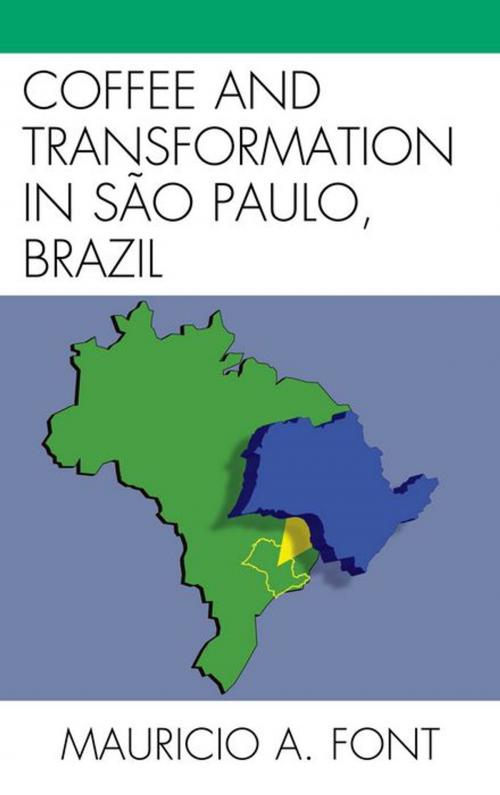| Author: | Mauricio A. Font | ISBN: | 9781461633167 |
| Publisher: | Lexington Books | Publication: | July 9, 2010 |
| Imprint: | Lexington Books | Language: | English |
| Author: | Mauricio A. Font |
| ISBN: | 9781461633167 |
| Publisher: | Lexington Books |
| Publication: | July 9, 2010 |
| Imprint: | Lexington Books |
| Language: | English |
Coffee and Transformation in São Paulo, Brazil advances a distinctive interpretation of the dynamism of the São Paulo region since the latter part of the nineteenth century. Large and entrepreneurial coffee landlords opened the frontier to the west of the state capital, playing a key role in making the state and Brazil the world's largest coffee producer for international markets. However, many of the immigrant settlers from Italy, Japan, Spain, and other countries emerged as major actors in the last phase of frontier expansion in western São Paulo. A substantial number of them found ways to become independent agriculturalists or enact new careers in commerce, industry, and services in the network of towns emerging in this region. This volume pays close attention to the political and economic implications of this region's process of segmentation and transformation, including their links to regionalism, political conflict, and the Revolution of 1930.
Coffee and Transformation in São Paulo, Brazil advances a distinctive interpretation of the dynamism of the São Paulo region since the latter part of the nineteenth century. Large and entrepreneurial coffee landlords opened the frontier to the west of the state capital, playing a key role in making the state and Brazil the world's largest coffee producer for international markets. However, many of the immigrant settlers from Italy, Japan, Spain, and other countries emerged as major actors in the last phase of frontier expansion in western São Paulo. A substantial number of them found ways to become independent agriculturalists or enact new careers in commerce, industry, and services in the network of towns emerging in this region. This volume pays close attention to the political and economic implications of this region's process of segmentation and transformation, including their links to regionalism, political conflict, and the Revolution of 1930.















